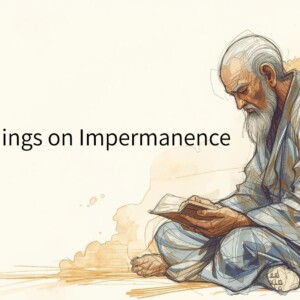
Kōans and the Zen Mind: Unlocking Insight Beyond Logic
Introduction
Zen is filled with paradox, poetry, and questions that seem to make no sense. These are not riddles meant to be solved, but invitations to experience the world beyond ordinary thinking.
Enter the kōan — a unique teaching tool that challenges the analytical mind and opens the door to direct insight.
In this article, we explore kōans and the Zen mind, what they are, how they work, and how they can transform your understanding of reality.
What Is a Kōan?
A kōan (公案) is a short anecdote, question, or dialogue from Zen tradition designed to interrupt habitual patterns of thought.
Famous examples include:
- “What is the sound of one hand clapping?”
- “Does a dog have Buddha-nature?”
- “What was your original face before your parents were born?”
Kōans are not puzzles with clever answers. They aim to exhaust the thinking mind and awaken intuitive knowing.
Why Kōans Matter in Zen Practice
Kōans are central in many Rinzai Zen traditions. They:
- Push students beyond dualistic logic
- Spark sudden insight (satori)
- Help reveal attachment to self and concept
“A kōan is a torch — not a text.”
How the Zen Mind Approaches a Kōan
The Zen mind meets kōans not with intellect, but with presence.
- Sit with the kōan in Zazen
- Let it echo in your awareness
- Don’t force an answer — let it work on you
- Responses may come through silence, gestures, or action
This process cultivates non-conceptual insight, beyond words and reasoning.
Kōans Are Not About Being Clever
There is no “right” answer in the conventional sense. A kōan may seem absurd or impossible — and that’s the point.
Examples of responses in Zen stories:
- A shout
- A bow
- Raising a finger
- Walking away
These actions express realization directly, without explanation.
Can Beginners Work with Kōans?
Yes — though traditionally guided by a teacher, kōans can still inspire deep reflection for solo practitioners:
- Choose one that resonates
- Sit with it daily, without rushing to understand
- Let it create space, not conclusions
A kōan is a living question. Let it be your companion.
Conclusion: Living the Question
Kōans are not about solving — they are about seeing differently. They dissolve the walls of logic and invite the mind to rest in the unknown.
In the Zen mind, answers are less important than presence. With each kōan, we are asked not to answer, but to awaken.
“Do not seek the truth. Only cease to cherish opinions.” — Zen saying
🌿 Want to go deeper into Zen and mindful living?
Explore ZEN for LIFE — a gentle guide to bringing presence, simplicity, and calm into your everyday routine.
Now available on Kindle.
#ZENforLIFE #MindfulLiving #EverydayZen










この記事へのコメントはありません。